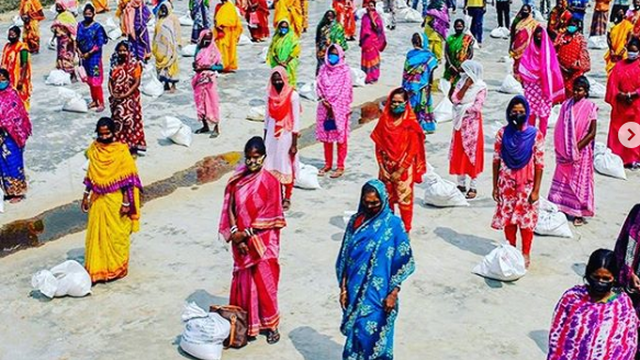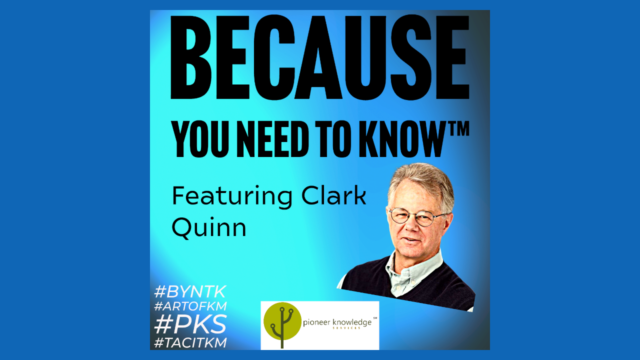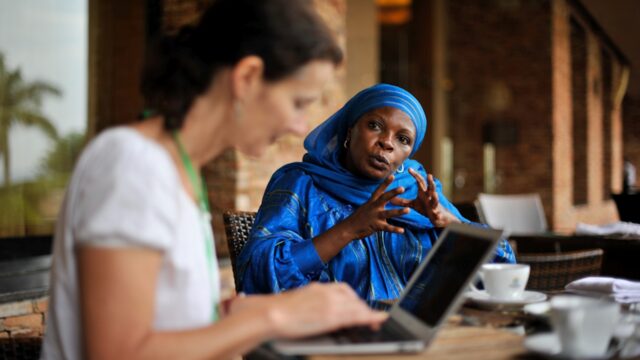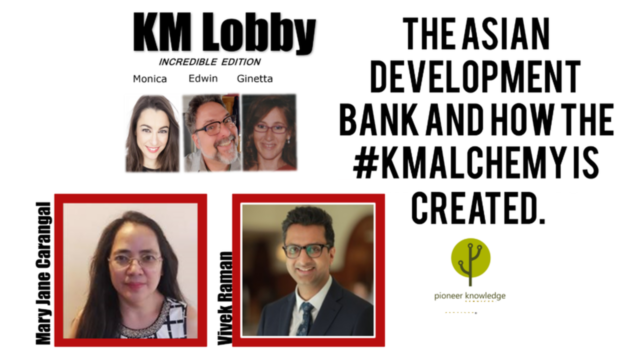
Manusher Jonno Foundation (MJF) COVID-19 learning: An analysis
Introduction
Following the outbreak of COVID-19, Manusher Jonno Foundation (MJF)1 has been focusing on saving and protecting the lives and livelihood of the most marginalised communities in Bangladesh such as persons with disabilities, Dalit and Harijan populations, transgender people, sex workers, ethnic minorities and working children.
With limited funds at hand, through its partner NGOs (PNGOs), MJF reached nearly 1.3 million beneficiaries across the country by providing information services to raise awareness on various aspects of COVID-19 messages such as hand washing, social distancing, fighting stigmatization and fake news.
PNGOs also contributed in ensuring fair and effective disbursement of social protection by advocating with local elected representatives and authorities. They also distributed sanitization and hygiene products and food to 1400 households. In addition, social counselling/legal aid support to address incidences of rising domestic violence against women and girls were also provided by PNGOs.
This learning paper highlights PNGOs’ COVID-19 learning during March to June 2020. The objectives of this paper are:
- To take a brief stock of activities conducted by PNGOs in project locations.
- To capture and document various challenges PNGOs faced in running Excluded Peoples’ Rights (EPR)2 project activities.
- Capture lessons learnt by analyzing information provided by PNGOs through management information system (MIS), COVID-19 template provided by KM team and feedback during learning webinars.
- Offer recommendations to MJF management to draw up a comprehensive plan for future.
Methodology
The following methods were used to produce this learning paper:
- A template was sent to all PNGOs to provide 15 categories of information involving multi-dimensional aspect of EPR project implementation during March to June 2020.
- A set of questionnaires were also provided as sample to ask relevant questions to enable writing the narrative through the template.
- The respective MJF programme teams compiled PNGOs information and forwarded the same to KM team.
- KM team collated all information and produced a total of eight presentations.
- In association with M&E, KM team organized eight webinars and presented the thematic findings to more than 200 participants from all EPR PNGOs.
- Based on feedback received from PNGOs, all presentations were further modified.
- In addition, information contained in the following documents prepared earlier by KM team were also used:
-
- An updated report sent to Director General (DG), NGO Affairs Bureau (NGOAB) highlighting MJF’s COVID-19 response till May 2020.
-
- A minutes prepared by KM team on online discussions with MJF Executive Director in the presence of all Executive Directors (EDs) of 130 PNGOs.
-
- Three e-newsletters produced by KM team covering PNGOs.
-
- Web stories on MJF website.
- MIS database reporting covering April to June 2020.
MJF’s responses
Since the official lockdown began 26 March 2020, MJF geared up its initial response plan and mobilized all PNGOs to curb infections and save lives. MJF quickly mobilized its partner NGOS to ensure that public health messages reach to affected communities to ensure that people stay inside to prevent the spread of the disease in their localities taking precautionary measures such as hand washing, the use of sanitizer and disinfecting office spaces. On 23 March, MJF Executive Director Ms. Shaheen Anam addressed all executive directors and programme coordinators of more than 100 PNGOs via live Facebook video and outlined the seriousness of the country and global situation.
From 26 March till 30 June 2020, all EPR PNGOs carried out various types of activities which can be divided into five categories.
- Personal hygiene materials distribution: Hand sanitizer, mask, antibacterial soap distributed among the beneficiaries. Youth volunteers used bleaching powder at different spots for disinfecting the areas, such as markets, public places, mosques etc.
- Awareness raising: PNGOs selected area-wise volunteer group from the project beneficiaries to get involved in food distribution, awareness communication, other materials distribution activity.
All PNGO’s targeted their primary groups and support groups to disseminate leaflets to raise awareness about COVID-19, boost up immunity of every House Hold (HH) members, particularly elderly to prevent the infection. Grass root workers and volunteers guided them with such information. Awareness raised through miking about COVID-19 prevention messages such as social distancing, healthy food habits, etc. Mobile telephone guidance conducted for the beneficiaries through volunteers of PNGOs in the project intervention areas.
Some partners developed special awareness messages for different kinds of disability. The messages are highlighting the rights of all vulnerable groups to receive support and relief during this crisis. The volunteers disseminated information on building harmony among different diverse groups, including minority, person with disabilities etc. Using the Digital Accessible Information System COVID-19, contents were developed for blind persons and distributed through email to 250 blind persons.
Some PNGOs developed pictorial demo on hand washing, sanitizer using and hexisol using instruction on PVC and hanged in tea-stalls, bus stand and market places.
PGOs working on Ethnic theme were also able to involve local traditional leaders because of special characteristics of the Chittagong Hill Tracts (CHT) areas. One of the PNGOs of Tackling Marginalisation and Discrimination (TMD) theme developed home quarantine guideline and distributed with the relevant Local Government Institution (LGI).
With various awareness-raising activities, PNGOs were able to reach some 1.2 million beneficiaries in 45 project locations.
- Advocacy: Using relationship with local government and local institutions, the PNGOs advocated with them for better targeting of relief material for the marginalized population. Partners assisted local authorities to identify the most vulnerable groups needing assistance.
The officials were highly appreciative of young volunteers ‘cordial support and impressive performance in selecting affected households, distribution of relief etc. The project officer of IED-led project under Youth and Social Cohesion Theme has been appointed as the District Coordinator of Corona Emergency Response Team formed by Police Department and 14 Civil Society Organizations in Sherpur District. In Thakurgaon district, a total of 127 youth were drafted in as members of COVID Response Committees in five upazila3.
PNGOs and project support groups negotiated with local government and local administration to get emergency food support for vulnerable beneficiaries HHs. As a result, some PNGOs received emergency food support for the most vulnerable HH that did not receive food support from any source. The Support groups and relevant stakeholders were mobilized by the PNGOs to monitor district and local level food and hygiene support distribution to the most vulnerable groups.
- Food assistance: PNGOs from their own contribution as well as from different source like, City Corporation, bank, private organizations collected food package and distributed among most marginalized community people in their locality. The food package contained rice, potatoes, lentils, oil etc.
- Social counseling/legal aid support: During COVID-19 emergency situation women, girls and other vulnerable/marginalized socially excluded women faced discrimination, inequalities and exploitation. They became more vulnerable to sexual violence/ abuse and torture. MJF provided support/ social counseling reference to the victims over phone/one to one contact.
Challenges faced by PNGOs
Like many, the pandemic experience was first of its kind for both beneficiaries and PNGOs. While regular project activities got stalled due to restriction imposed by the authorities, PNGOs nonetheless carried out their Corona-related activities as advised by the NGO Affair Bureau. In discharging such activities, PNGOs faced a number of challenges which are outlined below:
- Collection of violence against women and girls (VAWG)-related information over telephone was highly challenging. Initially victims were unwilling to talk on this issue in the presence of family members. Trained staff of PNGOs persuaded them to speak up.
- Many child marriages could not be stopped due to lack of timely information.
- Law enforcing institutions, medical service providers, local government officials were less interested in providing support to the VAWG victims as they were mostly occupied with COVID-19 patients.
- Coordination-gap between GO -NGO in terms of food and hygiene materials distribution was found in some places.
- PNGO staff mobility was hampered due to lock-down, compounded further by fewer public transport.
- Many Ready Made Garment (RMG) workers didn’t get salary and some even lost their jobs.
- Child workers migrated from place to places and in absence of legal document like National Identity Card (NID), many of them could not be listed to receive official support.
- Women migrant workers faced problem to send money to their families in Bangladesh, creating financial crisis for such families.
- Sex workers, trans-gender people, people with disabilities and were hardest hit due to loss of income and lack of official assistance.
- Political interference during the selection of beneficiaries were evident in many project areas. PNGOs negotiated at their level best, however, political preferences prevailed.
- Reduction in regular budget as instructed by DFID4 hampered PNGOs planned activities. PNGOs are constantly receiving inquiries from beneficiaries for whom a list was prepared earlier. Credibility of PNGOs are now being questioned at local level.
- Support provided to beneficiaries were inadequate compared to actual need and demand. PNGO staff also lacked sufficient number of protective gears and emergency procurement was not possible as these were not budgeted earlier.
- In many instances, non-cooperation by communities in complying with social distancing rules was hard to manage by youth workers.
- Weak mobile phone connection in remote places especially in the hill districts seriously hampered regular communication with beneficiaries. Frequent power cut in project locations also hampered smooth use of office equipment.
- During pandemic, beneficiaries and community people received awareness-related information from multiple sources, creating much confusion about accuracy of information received. In absence of any media literacy activities by PNGOs, misconception about COVID-19 treatment persisted due to rumors, superstitions and fake news in social media.
Lessons learnt
The following lessons emerged through PNGOs COVID-19 activities:
- Sustained advocacy with the government and local authorities are crucial to ensure that social protection systems during pandemic remains rights-based, gender-sensitive and inclusive. For national advocacy, continuous demand and lobbying for appropriate resource allocations for marginalized communities can contribute to secure political government that no one will be left behind. Sharing of timely and periodic reporting about field work with regulatory authority and Ministries will help appraise about MJF’s ongoing work.
- Reluctance by authorities to respond or act on MJF’s official letter was not forthcoming, in spite of constant follow-up. In the absence of direct advocacy activities, traditional lobbying approach such as direct phone-calls, email and one-to-one video discussion or a group conversation involving networks or alliances members with relevant policy actors can be explored.
- For local advocacy, joint awareness-raising activities and inclusion of PNGOs in local official committees provide opportunity for correct listing of beneficiaries for distribution of official food and cash support during pandemic.
- Providing timely information through appropriate channel about safety, health hygiene practices and social distancing can help reduce effects of rumours, fake news and misconception about the disease.
- Constant communication with beneficiaries by PNGOs are reassuring and comforting for beneficiaries, who can provide feedback about their needs and demands. It is also important for PNGOs to monitor governance challenges in the official relief operations. If issues of accountability, transparency and integrity are not resolved locally, it should be reported back in a systematic manner so that MJF can raise alarm bell with the Government.
- It is crucial to stand beside with women, children, disable, vulnerable and other members of marginalized groups in their hours of need, regardless of fund situation. Constant monitoring of domestic violence against women and children and reporting of the situation through media are crucial to draw attention of the authorities to expedite both administrative and legal actions to resolve such crises.
- Since food, cash and IGA support are crucial during early response and recovery phase, it is important to maintain regular grant support so that beneficiaries are not deprived of required humanitarian assistance during pandemic. Reduction in grant assistance entails lot of adjustment to budget and approved work plan, delaying timely disbursement of fund to PNGOs. The curtailed budget not only slows down activities, it also creates confusion among beneficiaries, putting reputational risk for DFID, MJF and PNGOs.
- There is no alternative to advance planning for smooth operation of project activities during pandemic, which are likely to be frequent in future. It is important to keep all beneficiaries’ information ready and handy in advance for timely response, instead of losing precious time for searching the same information during pandemic or similar emergencies.
- As evident during this pandemic, advance capacity-building on humanitarian assistance for MJF staff, LGI officials and beneficiary groups will equip all to deal with future shocks.
- Strengthening communication capacity of MJF and PNGOs are crucial to ensure timely response with appropriate information. Based on current experiences, MJF and PNGOs can prepare communication material, considering different needs based on gender, context and marginalized communities. Online advocacy and social media engagement are also effective to set human rights issues as public agenda.
- Accurate and timely collection of M&E data from the field are crucial for speedy adjustment to programmes and operational plans. Real-time data collection using mobile phone could be an important step to help speedy analysis so that the management can take timely decisions.
- In the case of budget adjustment during pandemic or similar situation, it is important to allocate some resources for the purchase of protective equipment for the use of MJF staff and PNGOs.
- As youth groups emerged as front-runner in the fight against COVID-19, it would be wise to invest more in enhancing their ability to influence their own and peer behavior to play dynamic role in the community.
- It also emerged that among all beneficiaries, women are specially lagging behind in using smart phone and social media. To reduce tech-inequality in future, it would be useful to provide necessary training specially to women beneficiaries to enable them to effectively use ICT during times of emergency.
- Enhancing local fund-raising capacity of PNGOs will help reduce resource-gap during emergency.
- Building partnership with religious institutions, press clubs, other NGOs and networking groups including Confederation of Bangladeshi Organisations (CBO) will strengthen PNGOs advocacy stance and contribute in better coordination to deliver better results for the beneficiaries.
A brief analysis from lessons learnt
The context, information and insights gathered from these learning exercises and document is briefly analyzed by combing three sides involved in good governance: supply, demand and the third sector. The conceptual framework is presented in the diagram below:

In an ideal situation, the quality of tripartite relations among the three sides will determine the effectiveness of the implementation of the COVID-19 responses. On the second level, interactions between any two sides will contribute significantly in the progress towards effective implementation of COVID-19 response plan. And finally, actors and stakeholders involved in each side will also play a significant role in determining the overall implementation scenarios.
The self-explanatory model presented above clearly demonstrate that tripartite relations among supply side, the third sector and demand side produce effective outcome for all actors involved, creating a win-win situation. On the contrary, if the relations among three forces are characterized by negative indicators, the expected outcome are unlikely, thus it will create mutual mistrust among all three parties involved.
Conclusion
COVID-19 learning by MJF’s PNGOs clearly demonstrates that multi-stakeholder partnership is key to achieving the desired development outcome intended for the beneficiaries during pandemic situation. Lack of coordination and coordination are very costly in terms of losing trust and reputation.
Taking cue from this model, MJF could further strengthen its ongoing COVID-19 responses by developing a standard operating procedure for emergency response, initiate online and mobile advocacy to capture beneficiary feedback, develop media literacy tools for community and stakeholders and reinforce the power of Right To Information (RTI) application to empower communities with information.
Header image: Maintaining social distancing while distributing food relief. Source: Manusher Jonno Foundation (MJF).
- Manusher Jonno Foundation (MJF) is one of the largest national grant-making organizations in Bangladesh disbursing funds and capacity building support for human rights and governance work. With massive experiences of handling partnership with more than two hundred partner NGOs (PNGOs) for the last 18 years, MJF has been striving to build capacities of poor and marginalized people in Bangladesh to demand basic and access those as a right and also raise voice against rights violation. On the other hand MJF works on the supply side, using social accountability tools to ensure responsiveness of service providing institution. MJF has developed capacity of 7,000 staff of partner organizations on human rights, governance, standard financial and accounting system etc. for effective and efficient implementation of programmes. ↩
- www.manusherjonno.org/ongoing_project/slide6/ ↩
- An administrative region in Bangladesh. ↩
- Now Foreign, Commonwealth and Development Office (FCDO). ↩






